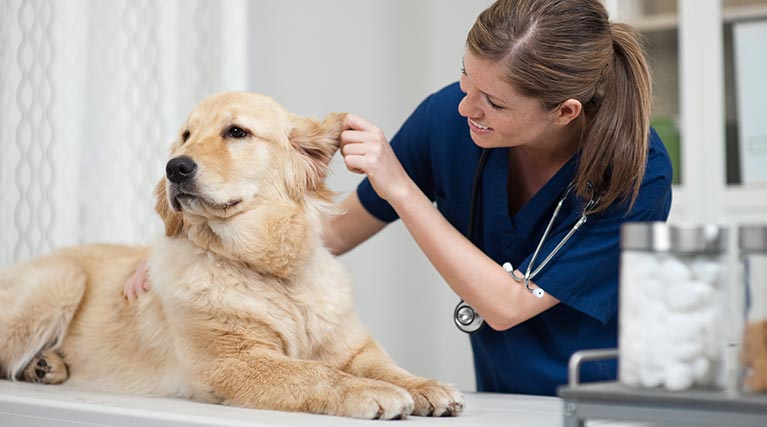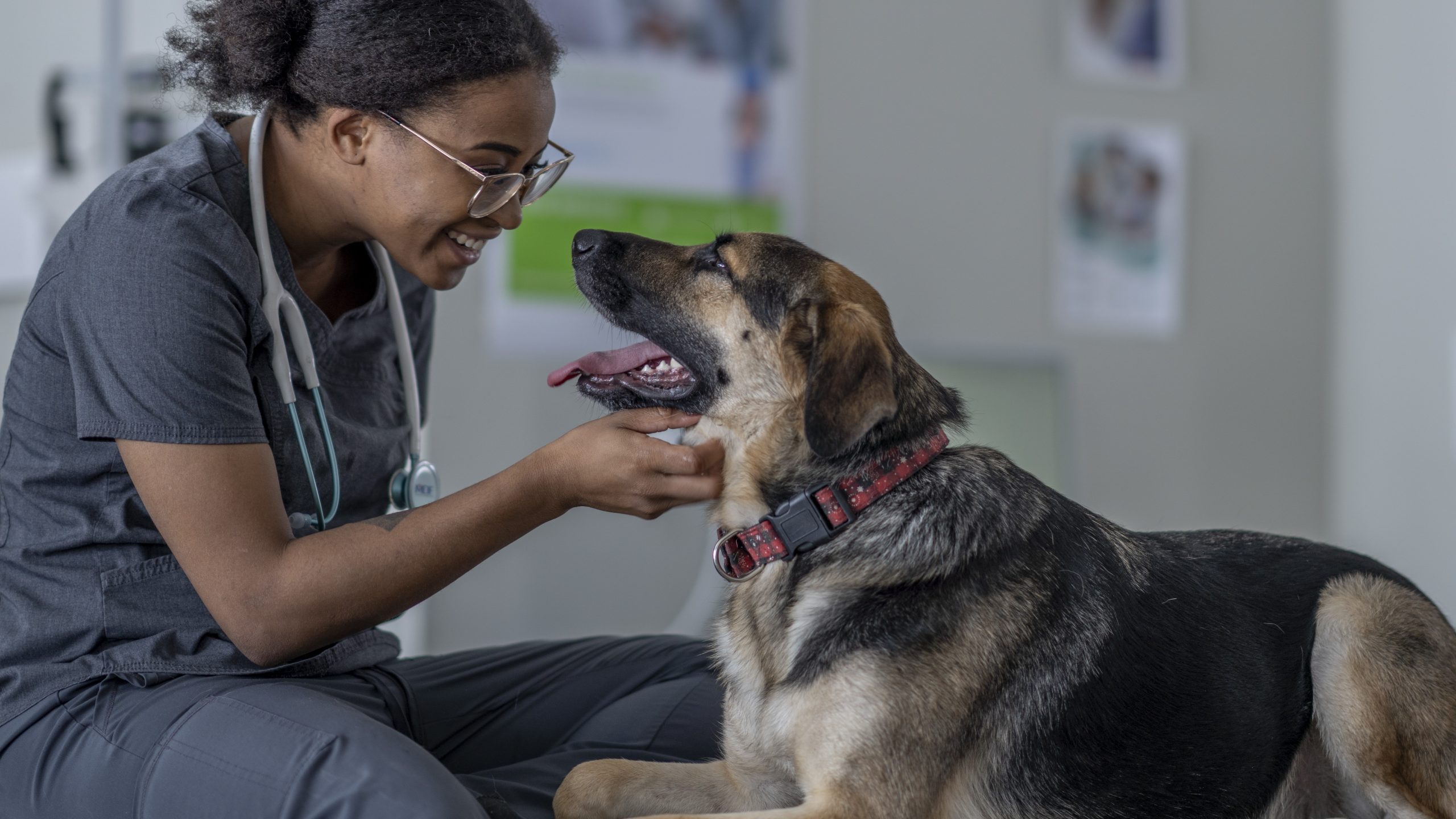The Advantages of Picking Veterinarian Enterprise for Your Pet's Ongoing Treatment
The Advantages of Picking Veterinarian Enterprise for Your Pet's Ongoing Treatment
Blog Article
Inoculation Standards From Your Relied On Vet
Inoculation guidelines supplied by your relied on vet play a crucial role in safeguarding your pet's health and health. Additionally, attending to common misunderstandings bordering vaccines can further enhance animal proprietors' self-confidence in these precautionary procedures.

Value of Inoculations
Vaccinations play a pivotal function in safeguarding family pets versus a series of preventable diseases. By stimulating the body immune system to recognize and battle particular microorganisms, vaccines considerably reduce the occurrence of contagious conditions that can affect a family pet's health and wellness and long life. Not only do vaccinations safeguard specific animals, but they likewise add to herd resistance, thereby minimizing the overall prevalence of diseases in the pet populace.
Prompt inoculations aid to minimize the spread of conditions such as rabies, parvovirus, and distemper, which can have extreme consequences for both pets and humans. Inoculations are typically a need for boarding centers, brushing services, and pet parks, making them essential for those that wish to mingle their family pets.

Core Vaccines for Animals
While the certain vaccination needs of pets can vary based on private elements, core injections are globally recommended to secure against the most typical and serious diseases (Emergency Vet). Core vaccines are those deemed necessary for all animals, despite their way of life or geographical place, as they safeguard against possibly fatal and highly transmittable health problems
For pets, the core vaccinations consist of those for canine distemper, parvovirus, adenovirus (hepatitis), and rabies. Canine distemper is a viral illness that affects the breathing, stomach, and nerves. Parvovirus is recognized for triggering severe stomach illness, particularly in young puppies. Adenovirus can cause liver disease, while rabies is a zoonotic illness that positions a danger to both pet dogs and humans.
In felines, core injections include feline panleukopenia, feline calicivirus, feline herpesvirus (rhinotracheitis), and rabies. Feline panleukopenia is an extremely infectious viral disease that affects the immune system and intestines. Calicivirus and herpesvirus are significant factors to top respiratory system infections in cats, while rabies stays an essential issue for public wellness.
Speak with your veterinarian to guarantee your pets obtain their core inoculations on timetable.
Non-Core Vaccines Explained
Non-core vaccines are customized to address specific dangers connected with an animal's setting, direct exposure, and lifestyle to particular conditions. Unlike core vaccines, which are generally suggested for all pets, non-core vaccinations are taken into consideration based on private scenarios. These vaccinations are especially crucial for pet dogs that might come across distinct virus as a result of their geographical area, traveling routines, or activities.
Instances of non-core vaccines include those for Bordetella bronchiseptica, which is connected to kennel coughing, and Lyme illness, caused by ticks. Animals that often connect with various other pets, such as those in boarding centers, dog parks, or grooming environments, might gain from Bordetella inoculation. If you live in a location where Lyme illness is widespread, immunizing against this condition can be a sensible option for outdoor-loving canines.
Various other non-core vaccinations might consist of those for leptospirosis, canine influenza, and feline leukemia, depending upon the certain risk variables existing. It is crucial to have a comprehensive website link conversation with your vet concerning your family pet's way of life and the potential need for these vaccinations, making certain a tailored inoculation method that finest safeguards your fuzzy close friend.
Inoculation Set Up Review
As animals develop, it is vital to stick to the recommended booster vaccinations. Pet Health Checkup. For grown-up pets, core vaccinations are generally provided each to 3 years, relying on the particular vaccination and neighborhood guidelines. Non-core vaccinations may be recommended based upon way of life elements and regional disease frequency, requiring a customized method
Normal anonymous veterinary exams are vital for updating vaccination timetables. Your veterinarian can give assistance on the most ideal immunizations for your pet, considering age, health and wellness condition, and ecological dangers. By staying aggressive and informed, pet dog proprietors can guarantee their hairy friends receive effective and timely inoculations, thereby securing their health and well-being throughout their lives.
Typical Myths Concerning Injections
Misunderstandings concerning pet dog inoculations can cause complication and unwillingness among pet proprietors regarding the booster shot procedure. One common misconception is that injections are unnecessary for indoor family pets. While it holds true that interior animals deal with reduced threats, they are not entirely unsusceptible to diseases, as pathogens can be presented with different means, consisting of human apparel and other family pets.
An additional false impression is that vaccines can trigger the diseases they intend to avoid. In truth, many vaccines contain inactivated or undermined virus, which can not cause condition in healthy pets. Some family pet proprietors likewise think that their pet dogs need to not be vaccinated if they are already healthy; nonetheless, vaccinations are a positive measure that helps avoid the start of disease.
Additionally, several pet dog proprietors are afraid that vaccinations will certainly lead to lasting health and wellness issues. While adverse effects can occur, they are short-lived and usually mild. The benefits of vaccination-- protecting pet dogs from possibly dangerous diseases-- far outweigh the dangers. Recognizing these common myths is vital for liable family pet possession and ensuring the health and wellness of your hairy friends. Always consult your vet for accurate information tailored to your pet dog's certain demands.
Final Thought
In recap, adherence to inoculation guidelines is important for ensuring the health and longevity of pets. Core vaccinations supply crucial defense against significant conditions, while non-core injections attend to specific risks based on private way of livings. Developing an extensive inoculation routine, combined with normal veterinary examinations, facilitates optimum health and navigate to this website wellness administration. Eliminating typical myths surrounding vaccinations additionally enhances the value of notified decision-making in family pet treatment. Eventually, an aggressive approach to vaccinations is vital for preserving pet dog health.
Not only do inoculations safeguard private pets, yet they additionally contribute to herd resistance, consequently minimizing the general frequency of conditions in the pet populace.
False impressions concerning animal vaccinations can lead to complication and unwillingness amongst pet owners regarding the immunization process. While it's real that indoor animals face lower risks, they are not totally immune to illness, as virus can be introduced through numerous methods, including human clothes and other animals.
Some pet dog owners additionally believe that their animals ought to not be vaccinated if they are currently healthy; nevertheless, vaccinations are a positive procedure that assists prevent the beginning of illness.
The benefits of vaccination-- safeguarding pet dogs from potentially deadly diseases-- much exceed the dangers.
Report this page